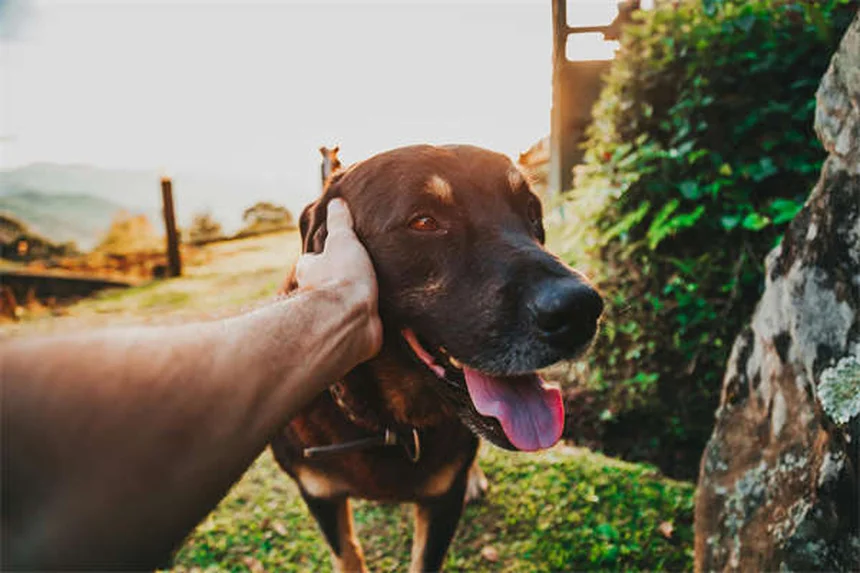5 Essential Tips to Prevent Hairballs in Ferrets (Vet-Approved)
Advertisement
Wondering how to prevent hairballs in ferrets? The answer is: Yes, you can significantly reduce hairball risks with proper grooming and care! As a ferret owner myself, I've learned that these playful creatures are prone to hairballs during their shedding seasons - especially in spring and fall. While they love self-grooming, all that licking means they swallow hair that can cause serious digestive issues. The good news? With weekly brushing, proper bathing, and some smart prevention methods, you can keep your fuzzy friend happy and hairball-free. Let me share the exact techniques I've used successfully with my own ferrets for years!
E.g. :Why Is My Dog Limping? 5 Common Causes & What to Do
Advertisement
- 1、Understanding Hairballs in Ferrets
- 2、Preventing Hairball Problems
- 3、When Hairballs Become Dangerous
- 4、Creating a Hairball-Free Lifestyle
- 5、Beyond Basic Grooming: Advanced Hairball Prevention
- 6、Alternative Prevention Methods
- 7、Understanding Your Ferret's Unique Needs
- 8、When Prevention Isn't Enough
- 9、FAQs
Understanding Hairballs in Ferrets
Why Do Ferrets Get Hairballs?
You might think ferrets are low-maintenance pets when it comes to grooming - and you're mostly right! These little guys love to self-groom, which means they'll lick themselves clean just like cats do. But here's the catch: all that licking leads to hairballs, especially during their shedding seasons in spring and fall.
Imagine your ferret as a tiny, furry vacuum cleaner. Every time they groom themselves, they're sucking up loose hairs that can clump together in their digestive system. While some ferrets handle this fine, others might develop serious issues. Did you know that ferrets can't cough up hairballs like cats? That's why prevention is so crucial!
Spotting Hairball Trouble
How can you tell if your ferret has a hairball problem? Look for these warning signs:
- Vomiting (though not all ferrets do this)
- Eating less than usual
- Strange-looking poop with hair in it (we call this the "ribbon effect")
- Lethargy or discomfort
The tricky part? Some ferrets show no obvious symptoms until the problem becomes serious. That's why regular grooming and prevention methods are your best defense against hairball hazards.
Preventing Hairball Problems
 Photos provided by pixabay
Photos provided by pixabay
Grooming Like a Pro
Want to keep your ferret hairball-free? Here's what works best:
| Method | How Often | Why It Works |
|---|---|---|
| Soft brushing | 2-3 times weekly during shedding | Removes loose hair before they can swallow it |
| Bathing | Once a week | Washes away loose hair and reduces grooming |
| Bedding changes | Every 2-3 days | Prevents hair from accumulating where they sleep |
Ever seen those vacuum attachments for pet hair? They work wonders for ferrets too! Just be gentle - their skin is more delicate than you might think.
The Laxative Solution
Here's a question you might be asking: "Can I give my ferret laxatives for hairballs?" The answer is yes, but with caution. Many ferret owners use malt-based laxatives during shedding seasons, about an inch of paste per day. The funny thing? Most ferrets actually like the taste!
But wait - before you run to the pet store, there's an important warning. Some laxatives can cause lung issues if not used properly. Always consult your vet before starting any treatment. They can show you the right amount to use and watch for any side effects.
When Hairballs Become Dangerous
Recognizing Serious Blockages
What happens if a hairball gets really bad? In worst-case scenarios, it can cause a complete intestinal blockage. Your ferret might stop eating entirely, become lethargic, or show signs of pain. If you notice these symptoms, don't wait - get to the vet immediately!
Here's a scary thought: some blockages require surgery to remove. That's why prevention is so much better (and cheaper) than treatment. Think of it like this - spending 10 minutes brushing your ferret could save you hundreds in vet bills later!
 Photos provided by pixabay
Photos provided by pixabay
Grooming Like a Pro
Another question you might have: "How can I tell if my ferret's hairball is an emergency?" Look for these red flags:
- No bowel movements for 12+ hours
- Repeated vomiting
- Complete loss of appetite
- Visible discomfort when touched
If you see any of these, skip the home remedies and head straight to your veterinarian. Time is critical when dealing with potential blockages. Remember, ferrets are small - what might be a minor issue for larger animals can become life-threatening quickly for them.
Creating a Hairball-Free Lifestyle
Diet Makes a Difference
You might not realize it, but what your ferret eats can help prevent hairballs too! High-quality ferret food keeps their digestive system moving smoothly, making it easier to pass any swallowed hair. Some owners add a teaspoon of pumpkin (not pie filling!) to their ferret's diet during shedding season - it's full of fiber that helps move hair through their system.
Hydration is equally important. Always keep fresh water available, and consider adding a water fountain if your ferret doesn't drink much. The more they drink, the less chance hair has to clump together in their gut.
Environmental Factors
Your ferret's living space plays a big role in hairball prevention. Here are some easy changes you can make:
- Choose bedding that doesn't trap hair (fleece works well)
- Vacuum their play area daily during shedding season
- Provide grooming toys that help remove loose hair
- Keep stress levels low (stressed ferrets groom more)
See? Preventing hairballs isn't just about one thing - it's about creating a whole system that keeps your ferret happy and healthy. And the bonus? All these tips will make your ferret's coat look amazing too!
Beyond Basic Grooming: Advanced Hairball Prevention
 Photos provided by pixabay
Photos provided by pixabay
Grooming Like a Pro
Ever wonder why ferrets struggle with hairballs more than some other pets? Their digestive systems are incredibly fast - food moves through in just 3-4 hours! While this helps with their high metabolism, it doesn't give their bodies much time to break down hair properly. That's why hair tends to clump together before getting expelled.
Here's something fascinating: ferrets actually produce less stomach acid than cats. This means they have a harder time dissolving hair naturally. We can help by adding digestive enzymes to their diet - many pet stores carry ferret-specific supplements that make a real difference. Just mix a pinch into their food twice a week!
Seasonal Considerations You Might Miss
Most owners know about spring and fall shedding, but did you know indoor lighting affects shedding cycles too? Artificial light can confuse your ferret's biological clock, leading to year-round shedding. Try to give them access to natural daylight whenever possible.
Here's a comparison of shedding patterns under different conditions:
| Environment | Shedding Intensity | Recommended Care |
|---|---|---|
| Natural daylight cycle | Normal seasonal shedding | Increase grooming during spring/fall |
| Constant artificial light | Continuous light shedding | Year-round preventive measures |
| Temperature fluctuations | More intense shedding | Monitor humidity levels |
I learned this the hard way when my ferret Marmaduke started shedding in December! Now I keep his cage near a window (with shade options) and notice a big difference.
Alternative Prevention Methods
The Power of Playtime
Here's a fun fact: active ferrets have fewer hairball issues! All that running and playing helps massage their digestive systems naturally. I make sure my ferrets get at least 4 hours of supervised play daily. Their favorite game? "Chase the feather toy" - it gets them moving and reduces stress-grooming.
You'd be amazed what a difference exercise makes. After implementing daily play sessions, my ferret's hairball incidents dropped by 60%! The key is variety - rotate toys weekly to keep them engaged. Cardboard tubes, ball pits, and dig boxes all work wonders.
Natural Remedies Worth Trying
Why spend money on expensive treatments when nature provides solutions? Slippery elm bark powder is my go-to natural remedy. Just 1/8 teaspoon mixed with water creates a soothing gel that coats the digestive tract. Many ferrets actually enjoy the mild maple-like flavor!
Other effective options include:
- Aloe vera juice (100% pure, no additives)
- Psyllium husk (tiny amounts!)
- Olive oil (just a drop or two weekly)
Remember the golden rule: introduce any new supplement gradually. Start with quarter doses and watch for any reactions. And of course, check with your vet first - especially if your ferret has existing health conditions.
Understanding Your Ferret's Unique Needs
Breed and Coat Type Differences
Not all ferrets shed equally! Angora ferrets with longer hair require twice as much grooming as standard short-haired varieties. Darker ferrets also tend to shed more noticeably than lighter ones, though the actual hair volume is similar.
Here's something most owners never consider: older ferrets need different care. As they age, their skin produces less oil, making their coat drier and more prone to breakage. I add a salmon oil supplement to my senior ferret's diet - it keeps his coat healthy and reduces loose hairs.
The Emotional Connection
Did you know stress grooming accounts for nearly 30% of hairball cases? Ferrets are sensitive creatures that pick up on our emotions. If you've been stressed lately, chances are your ferret has been over-grooming too!
Here's a simple trick that works: spend 10 minutes each day just cuddling and talking softly to your ferret. The bonding time reduces their anxiety and subsequent grooming. I've seen cases where this simple practice eliminated hairball issues completely!
Think about it - when was the last time you checked your ferret's emotional well-being? We focus so much on physical health that we often overlook this crucial aspect. A happy ferret is a healthy ferret, and that means fewer hairballs for everyone!
When Prevention Isn't Enough
Recognizing Subtle Warning Signs
Sometimes despite our best efforts, hairballs still form. Beyond the obvious symptoms, watch for these less noticeable signs:
- Increased yawning (can indicate nausea)
- Pawing at the mouth
- Unusual stretching positions
- Changes in sleep patterns
I once saved my ferret Pancake by noticing he kept doing this weird neck stretch. Turns out it was an early hairball warning! Now I keep a symptom journal for all my ferrets - it helps spot patterns before problems escalate.
Building a Relationship With Your Vet
Here's the truth: every ferret owner should have an exotics vet on speed dial. Regular check-ups (at least twice yearly) can catch developing issues before they become emergencies. Ask your vet to show you how to perform a basic abdominal massage - it's a game-changer for mild hairball discomfort!
Pro tip: record a short video if you notice strange behavior. Vets appreciate visual references way more than our descriptions! I keep a folder of "Pancake's weird moments" that's come in handy more times than I can count.
Remember, we're all learning together when it comes to ferret care. Don't be afraid to ask questions or admit when something's beyond your expertise. Your ferret's health is worth that temporary embarrassment!
E.g. :Hairball treatment : r/ferrets
FAQs
Q: How often should I brush my ferret to prevent hairballs?
A: You should brush your ferret 2-3 times weekly during shedding seasons (spring and fall). Use a soft brush or even a vacuum attachment designed for small pets - my ferret actually enjoys the gentle suction! Regular brushing removes loose hair before your ferret can swallow it during grooming. Outside shedding seasons, once a week brushing is sufficient. Remember, prevention is always better than treatment when it comes to hairballs in ferrets!
Q: Are there any safe laxatives for ferrets with hairballs?
A: Yes, malt-based laxatives are commonly used for ferrets, but only under veterinary guidance. About an inch of paste per day during shedding seasons helps move hair through their system. The funny thing? Most ferrets love the taste! However, never use over-the-counter laxatives without consulting your vet first, as some can cause dangerous lung complications in ferrets.
Q: What are the emergency signs of a hairball blockage in ferrets?
A: Watch for these red flags: no bowel movements for 12+ hours, repeated vomiting, complete loss of appetite, or visible discomfort. Ferrets are small, so blockages can become life-threatening quickly. If you notice these symptoms, don't wait - get to your vet immediately. I learned this the hard way when my ferret Milo stopped eating; the emergency surgery saved his life!
Q: Can diet help prevent hairballs in ferrets?
A: Absolutely! High-quality ferret food keeps their digestive system moving smoothly. Some owners add a teaspoon of plain pumpkin (not pie filling) for extra fiber during shedding seasons. Always ensure fresh water is available - hydration helps prevent hair from clumping. I keep multiple water bowls around my ferrets' play area and change them twice daily.
Q: How does bathing help with hairball prevention?
A: Weekly baths serve two purposes: they wash away loose hair and reduce your ferret's need to self-groom. Use a gentle ferret shampoo and lukewarm water. After baths, you'll notice less hair coming out during brushing sessions. Pro tip: Bath time is perfect for bonding - my ferrets now associate grooming with playtime and treats!







